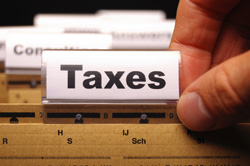Taxation reform for a leaner, healthier EU
The 'Food consumption and obesity: Public policy measures' (Foodob) project aimed at gaining a better understanding of the impact that various taxation policy interventions could have on efforts to stem the rise in obesity- and diet-related chronic diseases. Implementing taxation as a policy tool at the EU level calls for more information on the different effects this would have across countries due to varied consumer habits and preferences, retail market structures and regulatory environments. To realise their goals, project partners focused, among other factors, on the relationship between the food purchasing behaviour of households and obesity. They thus performed ex ante analyses of the impact of price changes or tax on sugar consumption. Findings revealed that, from a health perspective, the direction of sugar policy reform is not likely to have the desired effect, with consumption of added sugar actually likely to be larger. Given that sugar-sweetened beverages play a major role in obesity, study results suggest that taxing such products would help combat the epidemic, and thus that a tax should be set in relation to sugar content. Another project goal was to analyse the impact of excise tax and ad valorem tax, taking into account how the food and retail industry would react in transmitting the price of such a tax. Price changes as a result of taxation bring about significant substitutions among products, and firms do not perfectly transmit the tax to consumers. The study’s results indicated that ignoring the strategic pricing approach on the part of firms would lead to a misestimation of the impact of taxation by between 15% and 40%, depending on certain variables. Foodob also concluded that an excise tax based on sugar content would be the most efficient way to limit the consumption of soft drinks. Equivalent to taxing the input (sugar), such taxation would be easy to put in place. The project’s approach and findings bode well for future efforts aimed at combating unhealthy eating habits and thus driving down the incidence of diet-related illnesses.







